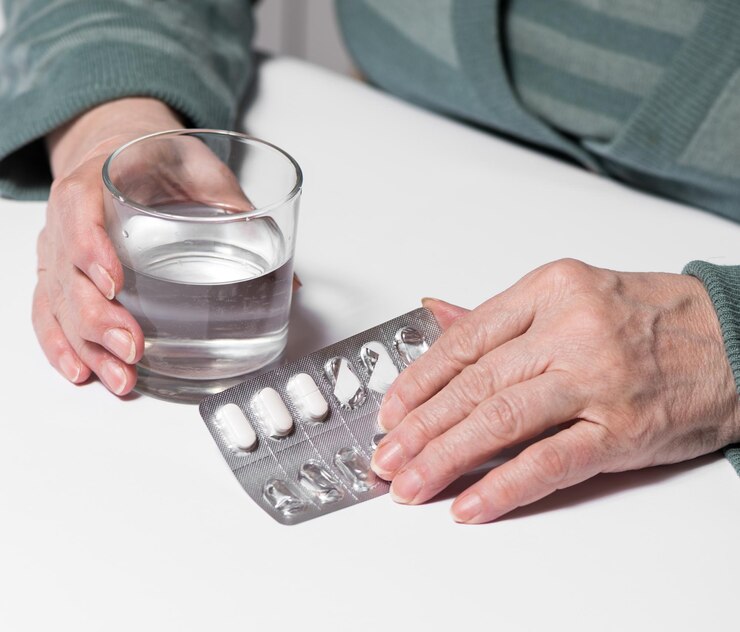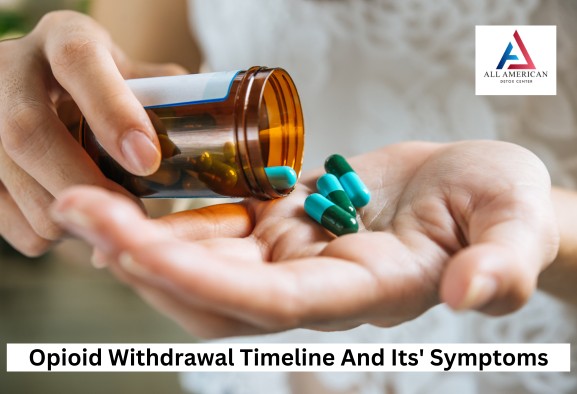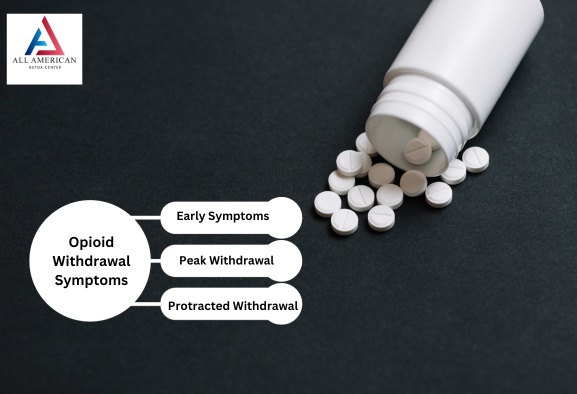Detoxification, or detox, is a critical first step in the journey toward recovery from substance abuse. It involves cleansing the body of harmful substances while managing withdrawal symptoms under professional supervision. As substance abuse continues to affect millions of individuals across the United States, understanding the different detox processes for various substances becomes increasingly important. All American Detox, a leading facility in addiction treatment, provides comprehensive detox programs tailored to the unique needs of individuals struggling with alcohol, opioids, and other substances.
This article delves into specific detox protocols for alcohol, opioids, and several other commonly abused substances. We will explore the symptoms associated with withdrawal, detail the detox processes, and highlight the support systems and resources available to those seeking recovery. By shedding light on these critical aspects, we aim to provide a thorough understanding of what detox entails and how All American Detox can help individuals reclaim their lives from the grip of addiction.
Starting with alcohol detox, we’ll examine the withdrawal symptoms that can manifest, the structured detox process, and the various support mechanisms in place to aid individuals. From there, we will move on to opioid detox, discussing the unique challenges it presents, the medications often employed to ease withdrawal, and the therapeutic interventions that support long-term recovery. Finally, we will cover detox programs for other substances, including stimulants, benzodiazepines, and cannabis, providing a comprehensive overview of the detox landscape.
Whether you or a loved one is grappling with addiction, or you are simply seeking to understand more about the detoxification process, this article aims to be an informative guide. Join us as we navigate the complexities of detoxing from different substances, emphasizing the hope and healing that All American Detox brings to those on the path to recovery.
Alcohol Detox
Alcohol detoxification, often referred to simply as alcohol detox, is a critical first step in the journey toward recovery from alcohol dependence. This process involves clearing the body of alcohol and managing the symptoms of withdrawal that can occur when a person who has been drinking heavily stops suddenly. Understanding the symptoms, the detox process, and the support systems available can help those struggling with alcohol dependency feel more prepared and less apprehensive about taking this vital step.
Symptoms of Alcohol Withdrawal
The symptoms of alcohol withdrawal can range from mild to severe and can start as early as a few hours after the last drink. Early symptoms typically include anxiety, shakiness, sweating, nausea, and irritability. More severe symptoms can develop within 24 to 72 hours and may include hallucinations, seizures, and a condition called delirium tremens (DTs), which is characterized by confusion, rapid heart rate, and high blood pressure. It’s important to recognize that withdrawal symptoms can vary greatly from person to person, influenced by factors such as the duration and intensity of alcohol use, overall health, and any co-occurring mental health conditions.
Detox Process for Alcohol
The detox process for alcohol typically begins with an initial assessment by healthcare professionals to evaluate the individual’s physical and mental health. This assessment helps to determine the appropriate level of care and any medications that may be necessary to manage withdrawal symptoms.
Detoxification can be conducted in various settings, including inpatient facilities, outpatient clinics, or at home under medical supervision. In an inpatient setting, individuals receive 24-hour medical care and support, which is crucial for those at risk of severe withdrawal symptoms. Outpatient detox programs may be suitable for those with less severe dependencies and a strong support system at home.
Medications such as benzodiazepines are often used to reduce the severity of withdrawal symptoms and prevent complications. Nutritional support, hydration, and monitoring of vital signs are also key components of the detox process. The goal is to ensure the individual’s safety and comfort while their body adjusts to the absence of alcohol.
Support Systems and Resources
Successful alcohol detoxification is not only about managing physical symptoms but also about addressing the emotional and psychological aspects of addiction. Support systems and resources play a crucial role in this regard.
Counseling and therapy can provide emotional support and help individuals develop coping strategies to handle cravings and triggers. Group therapy and support groups, such as Alcoholics Anonymous (AA), offer a sense of community and shared experiences that can be incredibly motivating and reassuring.
Family involvement is also a significant factor in the success of detox and ongoing recovery. Family therapy sessions can help repair relationships and build a supportive home environment. Additionally, many detox programs offer educational resources to help individuals and their loved ones understand the nature of addiction and the process of recovery.
In summary, alcohol detox is a multifaceted process that requires medical supervision, emotional support, and a strong network of resources. By addressing both the physical and psychological components of alcohol dependence, individuals can embark on a path toward recovery with the tools and support they need to succeed.
Opioid Detox
Detoxing from opioids is a challenging but essential step for individuals seeking to overcome addiction and regain control of their lives. Opioids, which include prescription painkillers like oxycodone and hydrocodone, as well as illicit drugs like heroin, can create severe physical and psychological dependency. The detox process aims to manage withdrawal symptoms, reduce cravings, and prepare individuals for long-term recovery. This section will explore the symptoms of opioid withdrawal, the medications used in opioid detox, and the therapeutic interventions that support successful detoxification.
Symptoms of Opioid Withdrawal
Opioid withdrawal symptoms can range from mild to severe and typically begin within hours of the last dose. Early symptoms often include:
– Agitation and anxiety
– Muscle aches
– Increased tearing
– Insomnia
– Runny nose
– Sweating
– Yawning
As withdrawal progresses, more intense symptoms can develop, such as:
– Abdominal cramping
– Diarrhea
– Dilated pupils
– Goosebumps
– Nausea and vomiting
– Rapid heartbeat
– High blood pressure
These symptoms can be extremely uncomfortable and, in some cases, may pose serious health risks. Therefore, it is crucial for individuals to undergo opioid detox under medical supervision.
Medications Used in Opioid Detox
Several medications are used to alleviate the symptoms of opioid withdrawal and to help individuals safely detox. These medications can be divided into two main categories: opioid agonists and non-opioid medications.
Opioid Agonists:
– Methadone: A long-acting opioid that can reduce withdrawal symptoms and cravings. It is usually administered in a controlled setting to prevent misuse.
– Buprenorphine: A partial opioid agonist that helps diminish withdrawal symptoms and cravings. It is often combined with naloxone to prevent misuse (e.g., Suboxone).
Non-Opioid Medications:
– Clonidine: An alpha-2 adrenergic agonist that can alleviate some withdrawal symptoms, such as anxiety, agitation, muscle aches, sweating, and runny nose.
– Lofexidine: Similar to clonidine, it helps reduce withdrawal symptoms without the risk of opioid dependency.
– Over-the-counter medications: These may include anti-diarrheal medications, anti-nausea medications, and pain relievers to manage specific symptoms.
Therapeutic Interventions
In addition to medications, various therapeutic interventions play a vital role in opioid detox. These interventions aim to address the psychological aspects of addiction and provide support during the detox process.
Behavioral Therapies:
– Cognitive-behavioral therapy (CBT): Helps individuals identify and change negative thought patterns and behaviors related to opioid use.
– Motivational interviewing (MI): Encourages individuals to find their motivation for recovery and to build confidence in their ability to change.
Support Groups:
– 12-Step Programs: Such as Narcotics Anonymous (NA), these programs provide peer support and a structured approach to recovery.
– Group Therapy: Facilitated by a trained therapist, group therapy sessions allow individuals to share their experiences and support each other.
Holistic Approaches:
- Mindfulness and Meditation: Techniques that help individuals manage stress and reduce cravings.
- Exercise and Nutrition: Regular physical activity and a balanced diet can improve overall well-being and support the detox process.
Inpatient and Outpatient Programs:
- Inpatient Detox Programs: Provide 24-hour medical supervision and support in a structured environment, ideal for individuals with severe addiction or co-occurring mental health disorders.
- Outpatient Detox Programs: Offer flexibility for individuals to receive treatment while maintaining their daily responsibilities, suitable for those with less severe addiction.
Successful opioid detox requires a comprehensive approach that combines medical, psychological, and social support. By addressing both the physical and emotional aspects of addiction, individuals can achieve a stable foundation for long-term recovery.

Other Substance Detox Programs
Detoxification is not a one-size-fits-all process; it varies significantly depending on the substance involved. While alcohol and opioids are among the most commonly discussed substances requiring detox, other drugs also necessitate specialized detox programs. These programs are vital for safely managing withdrawal symptoms and preparing individuals for long-term recovery. Here, we explore detox programs for stimulants, benzodiazepines, and cannabis.
Stimulant Detox
Stimulants such as cocaine, methamphetamine, and prescription medications like Adderall have a profound impact on the central nervous system. The detox process for stimulants can be particularly challenging due to the intense psychological cravings and fatigue that often accompany withdrawal.
Symptoms of Stimulant Withdrawal:
– Intense cravings for the drug
– Fatigue and lethargy
– Depression and anxiety
– Increased appetite
– Sleep disturbances
Detox Process for Stimulants
The detox process for stimulants generally focuses on managing psychological symptoms and providing a supportive environment. Unlike alcohol and opioids, there are no FDA-approved medications specifically for stimulant detox. Therefore, the process often involves:
- Supportive Care: Ensuring a safe and comfortable environment where individuals can rest and recuperate.
- Nutritional Support: Addressing any deficiencies and promoting a balanced diet.
- Mental Health Support: Counseling and therapy to manage cravings and emotional distress.
Benzodiazepine Detox
Benzodiazepines (benzos) like Valium, Xanax, and Ativan are often prescribed for anxiety and sleep disorders but can be highly addictive. Detoxing from benzodiazepines requires careful medical supervision due to the risk of severe withdrawal symptoms, including seizures.
Symptoms of Benzodiazepine Withdrawal
– Anxiety and panic attacks
– Insomnia and restlessness
– Tremors and muscle spasms
– Seizures (in severe cases)
– Hallucinations and psychosis
Detox Process for Benzodiazepines
The primary goal in benzodiazepine detox is to reduce the dosage gradually to minimize withdrawal symptoms. This tapering process can take weeks or even months, depending on the duration and dosage of benzodiazepine use. Key components of the process include:
- Medical Supervision: Continuous monitoring by healthcare professionals to manage symptoms and prevent complications.
- Gradual Tapering: Slowly reducing the dosage to allow the body to adjust.
- Therapeutic Support: Counseling and behavioral therapies to address underlying issues and support mental health.
Cannabis Detox
While cannabis is often perceived as less harmful than other substances, long-term use can lead to dependency and withdrawal symptoms when use is discontinued. Detoxing from cannabis focuses on managing these symptoms and addressing any psychological dependencies.
Symptoms of Cannabis Withdrawal:
– Irritability and mood swings
– Insomnia and vivid dreams
– Decreased appetite
– Anxiety and restlessness
– Headaches
Detox Process for Cannabis
Cannabis detox generally involves supportive care to manage mild to moderate withdrawal symptoms. Components of the detox process include:
- Supportive Environment: Providing a safe and supportive setting for individuals to detox.
- Mental Health Support: Counseling or therapy to address psychological cravings and any co-occurring mental health issues.
- Lifestyle Changes: Encouraging healthy habits such as regular exercise, a balanced diet, and stress management techniques.
Detoxing from Different Substances
Detoxing from various substances, whether alcohol, opioids, stimulants, benzodiazepines, or cannabis, is a complex and challenging journey that requires a multifaceted approach. Each substance presents its unique set of withdrawal symptoms and challenges, necessitating tailored detox programs to ensure safety and efficacy.
At All American Detox, we recognize the intricacies involved in the detoxification process. Our comprehensive programs are designed to address the specific needs of individuals struggling with different types of substance dependencies. For alcohol detox, we emphasize the importance of medical supervision and strong support systems to manage potentially severe withdrawal symptoms effectively. Our opioid detox programs integrate medication-assisted treatments with therapeutic interventions to mitigate withdrawal symptoms and promote long-term recovery.
We also offer specialized detox programs for stimulants, benzodiazepines, and cannabis, each with a focus on individualized care and evidence-based practices. The inclusion of medications, therapeutic support, and holistic approaches underscores our commitment to providing a well-rounded detox experience.
Recovery is an ongoing process that extends beyond the initial detox phase. At All American Detox, we provide continued support and resources to help individuals transition from detox to long-term sobriety. Our dedicated team of medical professionals, therapists, and support staff work collaboratively to create an environment conducive to healing and growth.
In conclusion, detoxing from substances is the first crucial step toward recovery. With the right support, medical oversight, and therapeutic interventions, individuals can navigate the challenges of withdrawal and embark on a path to a healthier, substance-free life. All American Detox is here to support every step of the way, ensuring that each person receives the comprehensive care they need to achieve lasting recovery.
FAQs:
- What is the process of detoxing from alcohol at All American Detox?At All American Detox, the process of detoxing from alcohol involves personalized medical supervision, withdrawal management, and holistic care to ensure a safe and comfortable detox experience.
- How does All American Detox support individuals in detoxing from opioids safely?All American Detox provides comprehensive support for individuals detoxing from opioids, including medication-assisted treatment, counseling, and 24/7 medical monitoring to address opioid withdrawal symptoms.
- Can individuals detox from multiple substances simultaneously at All American Detox?Yes, All American Detox offers integrated detox programs that cater to individuals detoxing from multiple substances, providing tailored treatment plans to address the complexities of dual detoxification.
- What types of support services are available for individuals detoxing from various substances at All American Detox?All American Detox offers a range of support services for individuals detoxing from various substances, including medical assessments, nutritional guidance, behavioral therapy, and aftercare planning.
- Does All American Detox provide specialized detox programs for specific substances such as prescription medications and stimulants?Yes, All American Detox offers specialized detox programs tailored to the unique challenges of detoxing from prescription medications, stimulants, and other specific substances.
- How does All American Detox ensure a safe and effective detox process for individuals with co-occurring mental health disorders?All American Detox ensures a safe and effective detox process for individuals with co-occurring mental health disorders by providing integrated care that addresses both substance dependence and mental health needs.
- What role does holistic care play in the detox programs at All American Detox?Holistic care is an integral part of the detox programs at All American Detox, encompassing mindfulness practices, nutritional support, exercise therapy, and alternative therapies to promote overall well-being during detox.
- Can individuals access personalized detox plans at All American Detox based on their substance use history and health status?Yes, individuals can access personalized detox plans at All American Detox, which are customized based on their substance use history, health status, and specific detox requirements.
- What are the long-term benefits of undergoing detox at All American Detox for individuals struggling with substance dependence?The long-term benefits of undergoing detox at All American Detox may include improved physical health, mental clarity, reduced cravings, and a solid foundation for continuing recovery.
- How can individuals take the first step in seeking detox services at All American Detox?Individuals can take the first step in seeking detox services at All American Detox by contacting our admissions team, who will provide guidance, answer questions, and assist in the intake process for detoxification.






